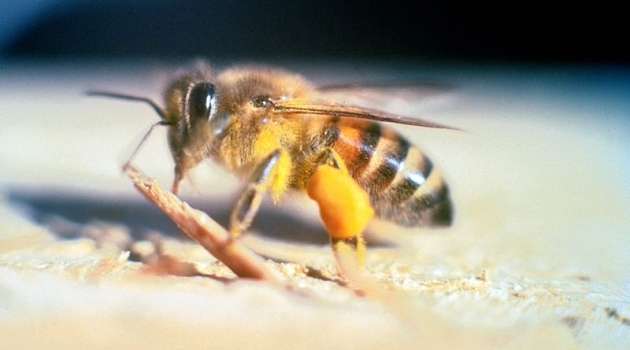Genes key to killer bee’s success
In a new study, researchers from Uppsala University sequenced the genomes of Africanised bees that have invaded large parts of the world to find out what makes them so extraordinarily successful. One particular region in the genome caught the researchers’ attention and the genes found there could be part of the explanation for the aggressive advances of these hybrid bees.
In 1956, a small number of honeybees from Africa were accidentally released in Brazil. What followed was a biological invasion of unprecedented magnitude. The bees hybridised with strains kept by local beekeepers and these hybrid bees - called Africanised or "killer" bees and known for their highly aggressive stinging behaviour - rapidly spread and now occupy much of north and south America. Africanised bees cause problems for beekeeping and pose significant risks to human health.
The precise genetic composition of Africanised bees and the reasons for their extraordinary success are not known. A new study by Matthew Webster's research group at Uppsala University together with colleagues from UK and Brazil has addressed these questions by sequencing the genomes of 32 Africanised bees and comparing them with the genomes of honeybees collected from all over the world in their previous studies. This allowed the team to reconstruct the evolutionary history of Africanised bees and identify genes that were important for their adaptation and dispersal.
One particular region of the genome stood out in the study. Although most of the Africanised bee genome is similar to bees from Africa, this region more closely matched bees from Europe, which were present in Brazil before the release of African bees. This suggests that the European version of this part of the bee genome gave the Africanised bees a selective advantage. Previous studies have linked genes in this region to ovary size and foraging strategy, indicating that these traits have been important for the success of Africanised bees.
This study highlights how hybridization between different populations, leading to the mixture of genetic variation, is an important process in evolution. Hybridization produces new combinations of genetic variants for natural selection to act on. This appears to have been an important factor in adaptation of Africanised bees.
Full article: Webster et al. (2017) Genome-wide analysis of admixture and adaptation in the Africanised honeybee, Molecular Ecology, DOI: 10.1111/mec.14122
Linda Koffmar

